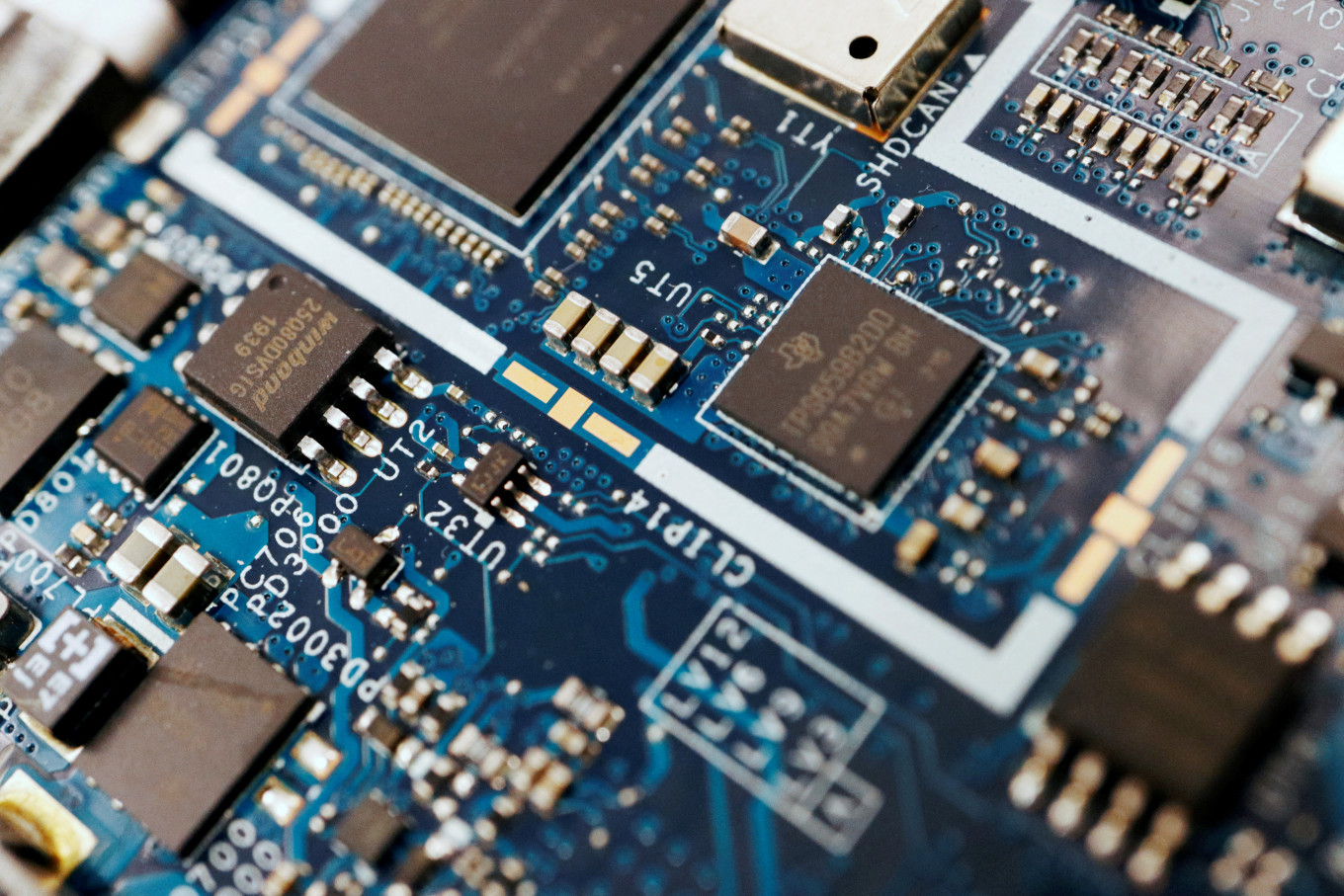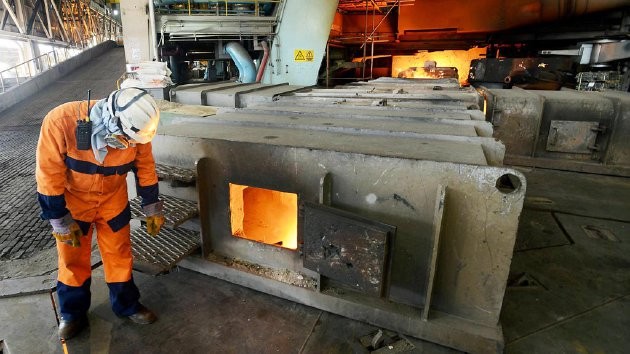Popular Reads
Top Results
Can't find what you're looking for?
View all search resultsPopular Reads
Top Results
Can't find what you're looking for?
View all search resultsMalaysia discussing response to US chip tariffs with companies
The Southeast Asian nation is home to a large semiconductor industry, including top US multinationals such as Intel and GlobalFoundries, and is one of the top exporters of chips to the United States.
Change text size
Gift Premium Articles
to Anyone
M
alaysia is discussing with chip companies based in the country whether they can absorb the impact of potential US tariffs on semiconductors, its trade minister said, as it looks to hedge against risks to its export-driven economy.
The Southeast Asian nation is home to a large semiconductor industry, including top US multinationals such as Intel and GlobalFoundries, and is one of the top exporters of chips to the United States.
US President Donald Trump said in February that he intended to impose tariffs on semiconductors starting at 25 percent or higher, though it is unclear when this decision could be made.
Malaysia would need to see the magnitude and quantum of the tariffs, Trade Minister Tengku Zafrul Aziz said in an interview with Reuters on Wednesday, as they could have a significant impact on its exports.
"We're discussing with the companies... whether the tariffs will be absorbed by the consumers," Tengku Zafrul said.
"Exports will continue to happen but someone has to pay for the higher cost, whether it be the consumers or the companies that absorbs."
Tengku Zafrul said the government has not discussed what it will do or whether it will provide financial support to offset tariffs.
Last year, Malaysia shipped $16.2 billion worth of chips to the US, accounting for nearly 20 percent of all US semiconductor imports, US trade data reviewed by Reuters show.
Tengku Zafrul also said Malaysian data centres were unlikely to be affected by export restrictions imposed on advanced chips by the previous US administration as demand for artificial intelligence remains strong.
Malaysia is fast becoming a major hub for data centres and AI factories in Southeast Asia, with investments from US technology giants including Microsoft, Google, Amazon and Oracle mainly in cloud services and data centres.
However, this investment boom may be hampered by new restrictions adopted in the final days of Joe Biden's administration on the use of US chips overseas, in a bid to further restrict China's access to AI semiconductors.
It remains unclear how Trump will enforce the new rules but the two administrations share similar views on the competitive threat from China.
Under the new rules, which are set to take effect in May, US cloud service providers, such as Microsoft, Google and Amazon, will be allowed to deploy only 50 percent of their total AI computing power outside the United States, and no more than 7 percent in Malaysia and other countries that have not been granted privileged access to US chips.
Tengku Zafrul said Malaysia's data centres will not be impacted given the sector's growth trajectory accounted for the limits of the restrictions.
The sector's prospects will be further boosted by the fact that the big data centre companies in Malaysia are US companies, he added.
"When we talk to the data centre players, Microsoft, Google, AWS ... there is not a concern because the allocation (under the restrictions) is adequate," Tengku Zafrul said.
"There will be no impact on the growth in data centres because AI will be used by many."











